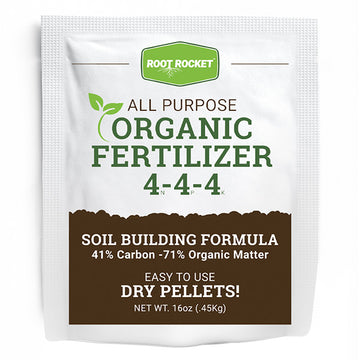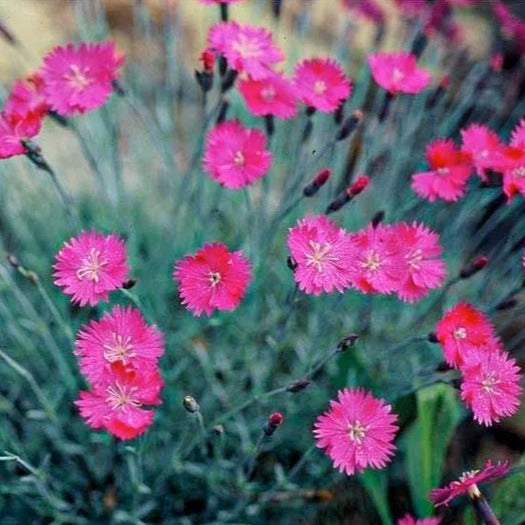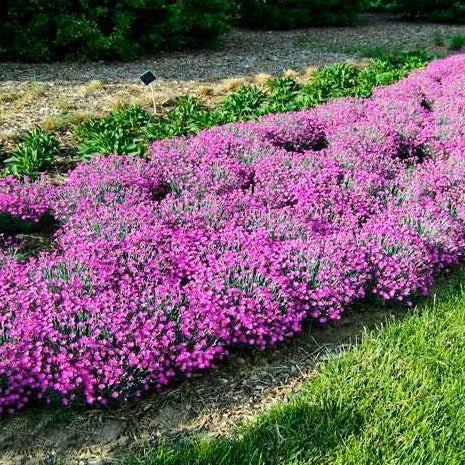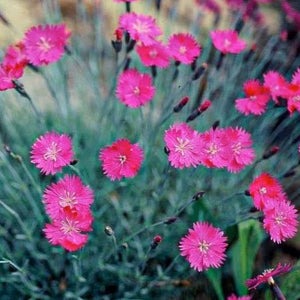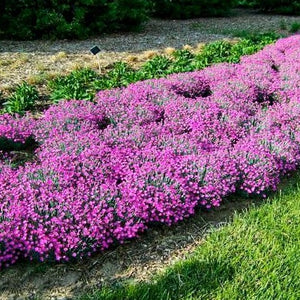Firewitch Dianthus
Product Details
 Growing Zones 3-8
Growing Zones 3-8
| Soil Type | Adaptable, Well Drained |
| Sunlight | Full |
| Drought Tolerance | Good |
| Mature Height | 1 Foot |
| Mature Width | 1-2 Feet |
| Fall Color | Blue |
| Bloom Color | Pink |
| Shipping Restriction | AK, AZ, HI |
Firewitch Dianthus are one of our favorite plants that we sell. If your looking to add color to your landscape, these are for you!
Firewitch Dianthus have a nice blue hue which really pulls out the color of other plants. They will also flower all summer long! If your landscape is all green, these Firewitch Dianthus will make your home pop.
Low Maintenance! After they flower, trim dead blooms and they will bloom again throughout the summer. Very easy to plant and hardy.
Key Benefits
- Lots of color!
- They do great in sunny locations
- Plant in well drained soil
- They attract butterflies
- Plant in clusters or plant individually throughout the landscape for more color
- Look awesome next to a boulder
How Do I Plant A Firewitch Dianthus?
Plant this groundcover in full sun exposure with well drained soil in grow zones 3-8. Perfect for rock gardens, in containers or as border plants.
How To Propagate This Dianthus
Propagate from tip cuttings in early spring to late summer. Tip cuttings should be atleast 2" long and have nodes.
What Are Good Companion Plants?
Phlox, super trouper and early bird frosty dianthus all grow well with the firewitch variety. Use this combination of groundcover in garden beds, containers, and as border plants.
Spring or fall are ideal times to plant your Firewitch Dianthus. However, as long as you avoid extreme temperature you can plant almost any time of the year. Plant you Firewitch Dianthus in growing zones 3 to 8.
This Dianthus thrives in full sun and is adaptable to a variety of soil, as long as it is well-drained. Water deeply when planting and 2 times per week for the first 3 months while your plant is establishing. Once established, water your Dianthus when dry. Add 2-3 inches of mulch to prevent weeds and protect your plant's roots in extreme temperatures. Fertilize with our slow release fertilizer when planting and in spring. Deadheading isn't necessary, but it can increase blooms and extend bloom time.
Dianthus are deer resistant and pollution and salt tolerant. They are very hardy and low maintenance.
The best way to prevent disease and pests is by providing the appropriate care for your plants. Proper location choice, watering, and fertilization are the keys to your success. Spider Mites and Aphids are potential problem insects for the Dianthus. These pests can be treated naturally with neem oil, or insecticidal soap. For severe infections you can use pesticides like carbaryl, also known as Sevin. Dianthus can, on occasion, encounter fungal issues. Generally, treating after infection isn't extremely effective. So, if you have problems yearly treat in early spring with fungicides to prevent infection. Neem Oil is an organic method of treating and preventing some fungal diseases and pests. It can be effective, but the entire plant must be coated in order for this method to be effective. Always water at the base of this plant to avoid fungal disease on the leaves.
For additional options, be sure to browse our Dianthus, Phlox and Ground Cover Plants collections.

